
Yosuke Kanegae Yosuke Kanegae
Partner
Tokyo
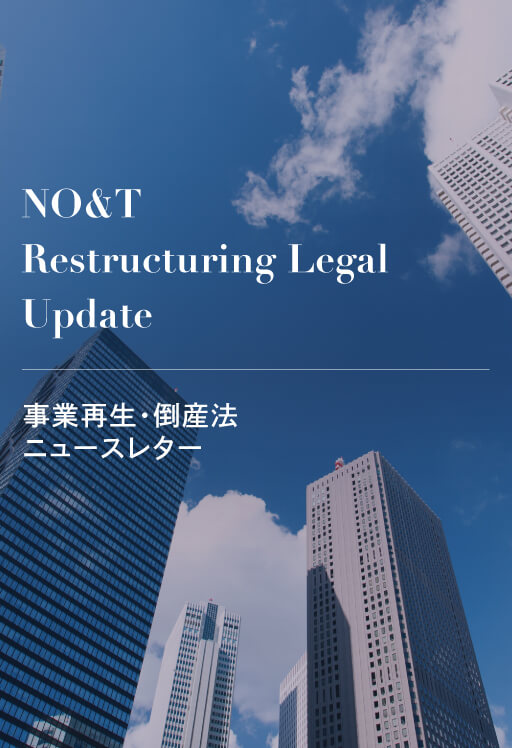
NO&T Restructuring Legal Update
This article is also available in Japanese.
The bankruptcy of FTX Trading, a major U.S. crypto assets exchange, is bringing to light the pitfalls of global bankruptcy. The reason for this is that FTX Japan, a Japanese subsidiary of FTX Trading, also filed for Chapter 11 bankruptcy protection in the U.S. This differs from the bankruptcy of Lehman Brothers Group given the Japanese subsidiary of FTX Trading did not file for bankruptcy in Japan due to a significant excess of assets.
Perhaps this is because the Financial Services Agency (FSA) has issued an order to retain assets in Japan, and the fact that there are still funds left to return. This also may be a source of reassurance, but there is no panic in Japan. What is often overlooked, however, is the reality of the significant hurdles Japanese clients would face to recover their assets when acting in accordance with U.S. bankruptcy procedures.
I have been involved in numerous international insolvency cases, including serving as acting deputy trustee for MtGox, which filed for bankruptcy in 2014, the first major insolvency for a crypto exchange company. Based on my extensive experience, I would like to explain the legal issues surrounding the protection of customers' rights in the bankruptcy of FTX Trading.
In Japan, the rights held by customers depositing crypto assets against domestic exchange companies are often described as a "creditorial right to demand the return of the deposited crypto assets" (there is the August 5, 2015 ruling by the Tokyo District Court relating to MtGox).
In order to ensure that the domestic exchange company can definitely comply with the right to demand the return of fiat, even in the event of a deterioration of their financial situation, the deposited funds should be managed in the form of trusts in accordance with the Payment Services Act (Article 63-11(1) of the Act No. 59 of June 24, 2009), and the beneficial interest in such trusts are held by the customer. In addition, cryptographic assets are managed in so-called cold wallets (Article 63-11(2)).
In addition, the Payment Services Act has a special provision that grants a preferentiality to the customer's right to claim the return of crypto assets (Article 63-19-2(1)). This is generally described as a type of lien.
The entitlement to first refunds under the Payment Services Act is a customer protection mechanism that was introduced in Japan ahead of any other country in the world. And further, there does not appear to be any similar system in existence in the U.S. Therefore, it is debatable whether the preferential right is recognized as effective under U.S. law as it is under Japanese law. In addition, there are likely to be various discussions in the U.S. as to what rights customers have against exchange companies.
Even if the effect of the right of preferential repayment under Japanese law was to be recognized as it is in relation to Chapter 11, assuming the legal nature of the "creditorial right to claim restitution," customers would not be able to recover crypto assets directly. Instead, they would in principle receive preferential repayment in the restructuring plan under Chapter 11 proceeding.
If a domestic exchange company files for U.S. bankruptcy protection, who will manage the company's assets?
The FTX's bankruptcy proceedings occur in the form of Debtor in Possession (DIP) type proceedings. During this process the current management team will continue to run the company, including the management of its assets. In addition, a Corporate Restructuring Officer (CRO) is invited from outside before the legal proceedings are commenced, and this CRO may exercise authority as it sees fit. As long as the domestic exchange company has filed a Chapter 11 petition, this CRO will continue to manage the business, including property management.
In Japan, no trustee in a civil rehabilitation or corporate reorganization proceeding or bankruptcy trustee in a bankruptcy proceeding has been appointed for the domestic exchange company. To exercise proceedings under the U.S. Bankruptcy Code in Japan, it is necessary to go through the Recognition Proceedings. Even if such an application is filed, a trustee is not appointed in Japan unless the court administrative order (Article 32 of the Act on Recognition of and Assistance for Foreign Insolvency Proceedings. Act No. 129 of November 29, 2000) is issued.
Under the Japanese court practice so far, it is likely that an administration order will not be issued if the foreign insolvency proceeding is of DIP type. However, to protect the rights of domestic customers, the appointment of a trustee or at least making the removal of assets out of Japan a matter of court permission should be considered.
Can customers located in Japan demand the "voluntarily" return of their fiat or crypto assets directly from domestic exchange company?
The U.S. Bankruptcy Code has a system called the "automatic stay" (Chapter 362 of the U.S. Bankruptcy Code). Under U.S. law, the stay takes effect on all assets worldwide upon the filing of a Chapter 11 petition, limiting the ability of creditors to exercise their individual rights.
It seems not usually expected that a domestic exchange company under the control of the CRO will ignore the stay order and begin voluntarily reimbursing customers for assets for which reimbursement is prohibited under U.S. law (There are also sanctions in the U.S., such as contempt of court charges).
Therefore, it is conceivable that a customer may seek a release from Chapter 11 proceedings (Section 362(d) of the U.S. Bankruptcy Code). This is a procedure that allows for the right of restitution without being barred from effecting a stay, and is generally used when a secured party seeks to allow enforcement of a security interest on the grounds that there is no "adequate protection" as of right over the secured assets.
As explained above, in Japan, customers have a "beneficial interest in a trust" for fiat and have the right to demand the return of crypto assets with preferential repayment rights attached. Whether the stay can be released if the domestic exchanger has properly secured the assets in accordance with Japanese law and administrative penalties is an issue that requires consideration under U.S. law.
On the other hand, from the perspective of Japanese law, it is necessary to obtain an order of recognition of foreign insolvency proceedings, an order of stay of security interest execution proceedings, etc. and an order prohibiting compulsory execution, etc. (Article 22, Article 27 and Article 28 of the Act on Recognition of and Assistance for Foreign Insolvency Proceedings) from a Japanese court (The Tokyo District Court has exclusive jurisdiction. Article 4 of the Act) in order to restrict a customer from conducting security interest execution proceedings or compulsory execution, etc. in Japan.
Therefore, given the situation where there are no insolvency proceedings or recognition procedures under Japanese law, there are possible means for customers to receive "compulsory" repayment from domestic exchange company.
If the right of priority payment under the Payment Services Act is a lien, it is worth considering using this right to conduct compulsory execution procedures such as seizure against the crypto assets of domestic exchange company as a lien holder. However, there is no settled theory on the legal nature of the right of priority payment under the Payment Service Act under Japanese law, and there are various discussions on the method of compulsory execution against crypto assets. In addition, since it is believed that domestic exchange companies have adequately secured their assets in custody now by law and administrative action, there may be some discussion as to the necessity of compulsory enforcement.
However, if customers located in Japan are to proactively and aggressively pursue the protection of their rights as creditors, like creditors in the U.S. who aggressively assert and exercise their legal rights, compulsory execution procedure is one option that should be considered.
It has been reported that some exchange companies of FTX Trading group company are considering transferring their businesses. Since a license and approval in Japan are required for the domestic exchange company to continue its business, it is assumed that the transaction would not be an asset sale, but a share transfer in which the parent company holding the domestic exchange company's stock (said to be a company located in the Bahamas) would sell its share to a third party with the permission of the U.S. Bankruptcy Court.
In this case, the parent company of the domestic exchange company would receive the proceeds from the sale of the shares, the domestic exchange company would be discharged from Chapter 11, and the proceeds from the sale of the shares would be used to repay the parent company's creditors in Chapter 11. At that time, it is expected that the transaction will be premised on the return of all deposited assets to the customers of the domestic exchange company in Japan.
Even in this case, however, the bidding procedure, due diligence, and negotiation of the transfer agreement to determine the buyer of the shares is expected to take several months at the very least. In addition, if a creditor files an objection to the sale of shares by the parent company in the Bahamas under Chapter 11, the process may take even longer.
If the share sale process under U.S. bankruptcy proceedings fail, Japanese customers will have no choice but to exercise their rights in accordance with U.S. Chapter 11, since domestic exchange company is also under the procedure. To participate in the proceedings, they are required to file a proof of claim in accordance with U.S. law, vote for or against the proposed reorganization plan, and if the plan is approved, they will receive repayment based on the reorganization plan. Naturally, the procedures will be conducted in English, creating language issues for Japanese customers.
In such a case, there could be an issue under U.S. law as to whether the assets of the domestic exchange company would be repaid to its customers located in Japan without being sent to the U.S. If this is the case, there could be a conflict with the Japanese financial system. If so, there would seem to be an issue of how to sort out the relationship that would arise between the domestic exchange companies being under the supervision of the Japanese FSA and the stay order that has been issued on the assets in Japan managed by CRO in the U.S.
In addition, it is understood that in Japan, a customer's right to return crypto assets is monetized in bankruptcy proceedings (Article 103-2 of the Bankruptcy Law), but in civil rehabilitation proceedings, there is no particular problem with paying back the crypto assets as they are. This has been confirmed in the MtGox case.
In this regard, it is also necessary to confirm whether it is possible to repay crypto assets in their entirety under the U.S. Bankruptcy Code. Furthermore, the question of what kind of IT system is used to transfer crypto assets could also be a major practical issue.
If a company files for administrative civil rehabilitation or corporate reorganization proceedings and these proceedings are commenced, a trustee is appointed. In this case, assets located in Japan would be placed under the control of a trustee appointed by the Japanese court.
The assets of the domestic exchange company would then be legally preserved under the supervision of the Japanese court, and customers would be able to file claims in Japanese and receive payment under the rehabilitation plan under the supervision of the Japanese court. Through this process no particular problems are expected to arise in relation to the domestic retention order issued by the FSA or the preferential repayment rights under the Payment Service Act.
Indeed, in this case, FTX Japan's assets seem to exceed its liabilities and appear to have no solvency problems. Therefore, there is a discussion as to whether the requirement to file for legal insolvency proceedings is suitable in the first place. That is, for example, the Civil Rehabilitation Act requires (1) the risk that a fact constituting the grounds to commence bankruptcy proceedings would occur to a debtor and (2) the fact that a debtor is unable to pay debts that are due without causing significant hindrance to business continuation (Article 21 of the Civil Rehabilitation Act), and the U.S. Bankruptcy Code is seemingly granting filings quite broadly. However, the Civil Rehabilitation Act also stipulates that if there is a foreign insolvency proceeding against the debtor, the fact causing the commencement of legal insolvency proceedings shall be presumed to exist (Article 208 of the Civil Rehabilitation Act and Article 243 of the Corporate Reorganization Act).
Nevertheless, it would be difficult for a domestic exchange company under the control of a CRO to make decisions apart from its group companies, and if a domestic exchange company were to file for legal insolvency proceedings and be supervised by the Japanese court, its customers as creditors would have the choice to take the initiative in filing the petition. In this regard, the question for customers located in Japan is whether they are willing to proactively and aggressively pursue protection of their own rights as creditors.
Of course, there would be no problem if FTX Japan were to be removed from the U.S. Chapter 11 process and processed under Japanese legal bankruptcy procedures, as long as a formal court decision is made in the Chapter 11 proceedings. However, if the same corporation were to go through "parallel insolvency proceedings" in multiple countries without such coordination, the coordination between the proceedings would be quite complicated.
As described above, while the possibility of filing insolvency proceedings in Japan against FTX Japan is worth considering, a number of legal and practical issues are likely to arise.
Thanks to the efforts of the Japanese government and the cooperation of domestic exchange companies, Japan has led the world in the development of customer protection mechanisms. Now, however, an unexpected situation has arisen in which domestic exchange companies are involved in bankruptcy proceedings in foreign countries. Even if domestic assets can be preserved through legal or administrative action, the hurdle is sure to be high in any case before assets are secured and returned to customers through the necessary procedures in foreign bankruptcy proceedings.
In general, the U.S. Bankruptcy Code is such that a reasonable conclusion is reached when creditors assert their own rights and debtors respond to them. It would be worthwhile to consider taking the position of proactively and aggressively pursuing the protection of the rights of customers located in Japan, considering the fact that they are creditors involved in Chapter 11 under the U.S. Bankruptcy Code.
This newsletter is given as general information for reference purposes only and therefore does not constitute our firm’s legal advice. Any opinion stated in this newsletter is a personal view of the author(s) and not our firm’s official view. For any specific matter or legal issue, please do not rely on this newsletter but make sure to consult a legal adviser. We would be delighted to answer your questions, if any.


Yuan Yao Lee


Ryuji Oka


(January 2025)
Makoto Ito
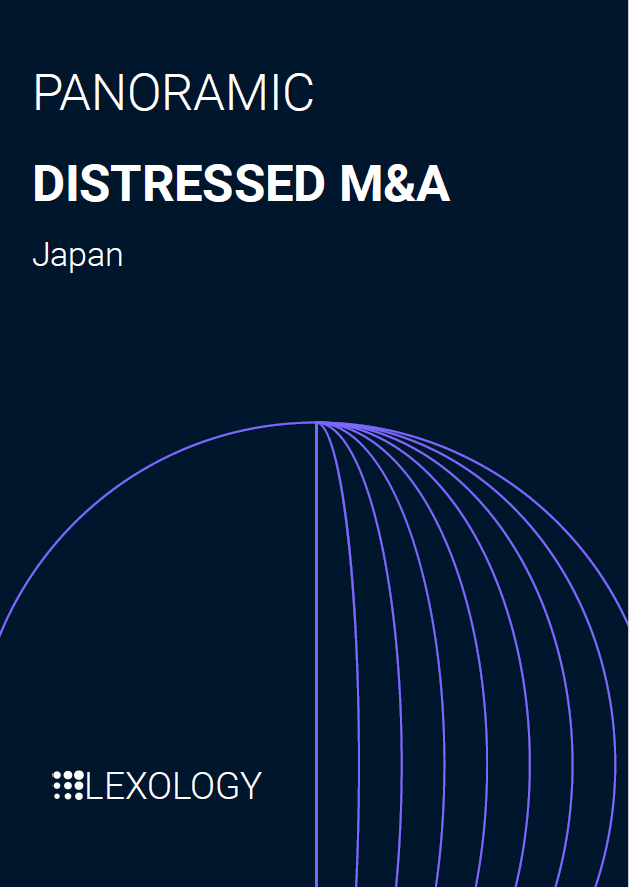

(December 2023)
Kei Asatsuma, Tomohiro Okawa (Co-author)


Ryuji Oka


Yothin Intaraprasong, Theerada Temiyasathit (Co-author)
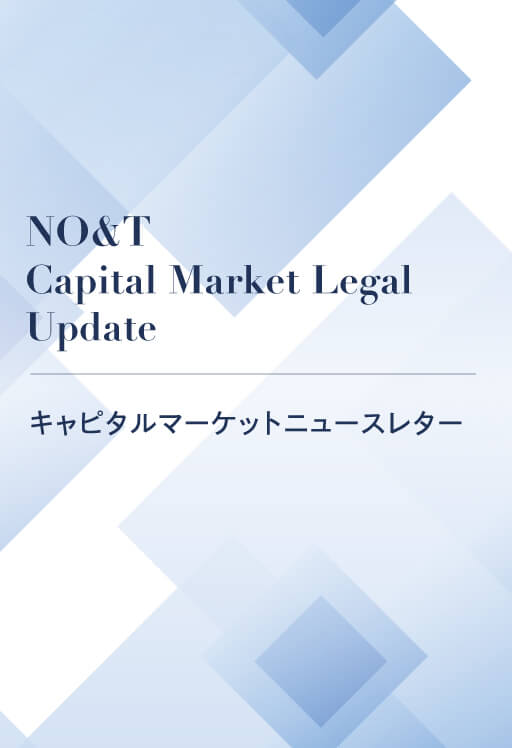

Yuichi Miyashita, Miho Susuki (Co-author)


Makoto Saito, Shinichiro Horaguchi, Yoshihisa Watanabe, Ramsay Randall (Co-author)


Hoai Truong


(August 2025)
Keiji Tonomura, Yoshiteru Matsuzaki (Co-author)


(July 2025)
Ryo Okubo, Yu Takahashi, Uchu Takehara, Naoto Obara (Co-author)


(June 2025)
Keiji Tonomura, Yukiko Konno, Minh Thi Cao Koike, Yoshiteru Matsuzaki (Co-author)
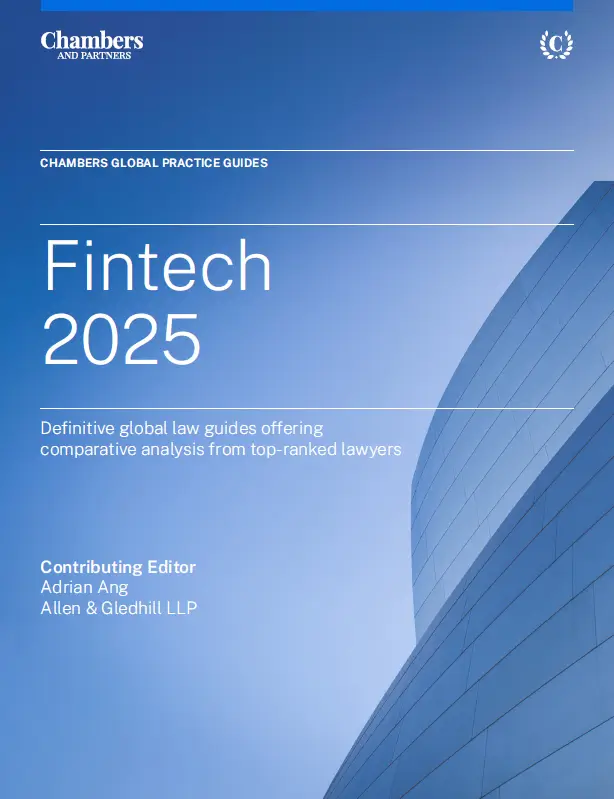

(April 2025)
Keiji Tonomura, Shu Sasaki, Kazuyuki Ohno, Otoki Shimizu (Co-author)


Yuan Yao Lee
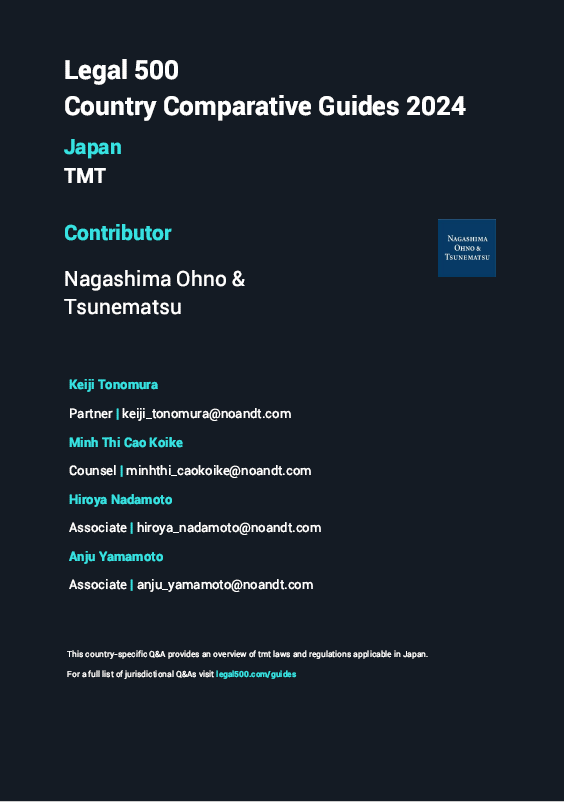

(August 2024)
Keiji Tonomura, Minh Thi Cao Koike, Hiroya Nadamoto, Anju Yamamoto (Co-author)
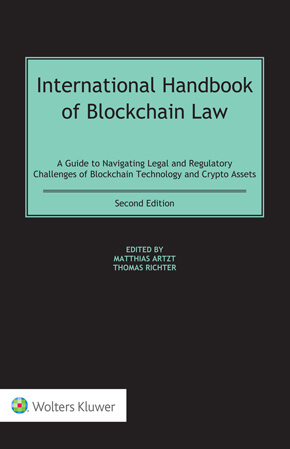

Wolters Kluwer (August 2024)
Takashi Itokawa (Co-author)


Ryuji Oka
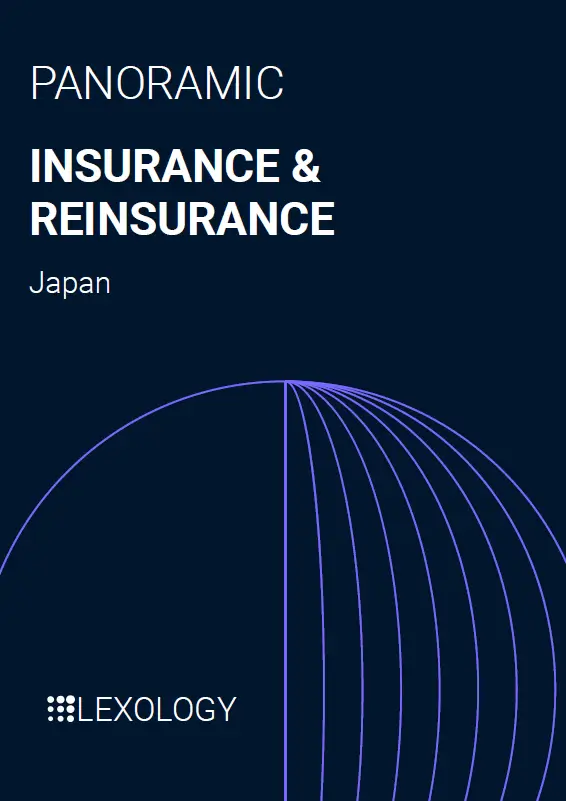

(May 2025)
Keitaro Oshimo


Ario Putra Pamungkas


(October 2024)
Sosuke Kimura (Co-author)


Supasit Boonsanong, Thananya Pholchaniko, Phareeya Yongpanich (Co-author)


Patricia O. Ko


Claire Chong, Nozomi Kato (Co-author)


Yuan Yao Lee


(May 2024)
Makoto Ohnuma


Yosuke Kanegae
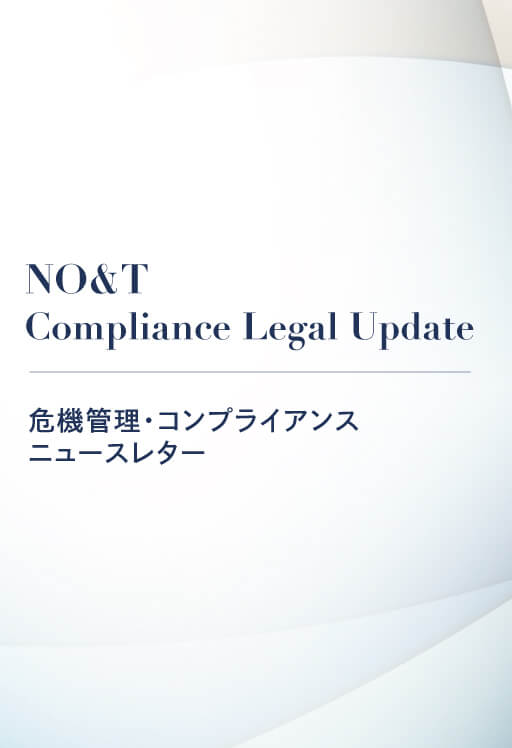

Daisuke Fukamizu, Daniel S. Kahn (Davis Polk & Wardwell LLP) (Co-author)
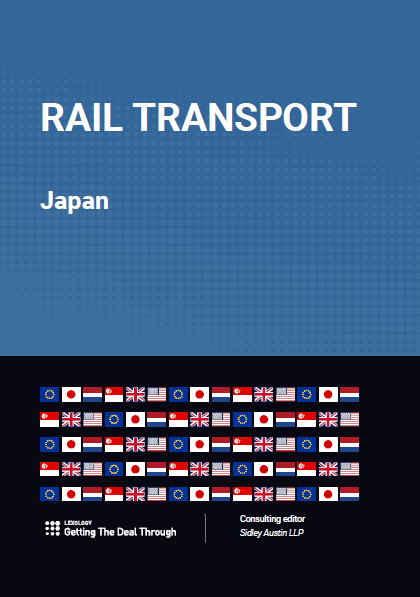

(August 2022)
Naoki Iguchi


(May 2024)
Makoto Ohnuma


Yosuke Kanegae


Daisuke Fukamizu, Daniel S. Kahn (Davis Polk & Wardwell LLP) (Co-author)


(August 2022)
Naoki Iguchi